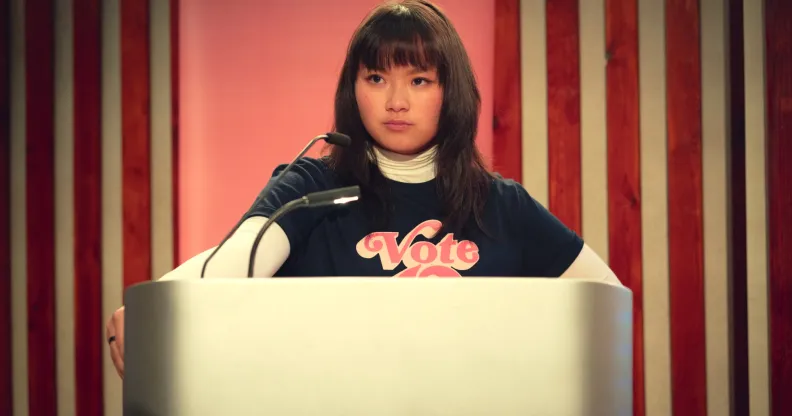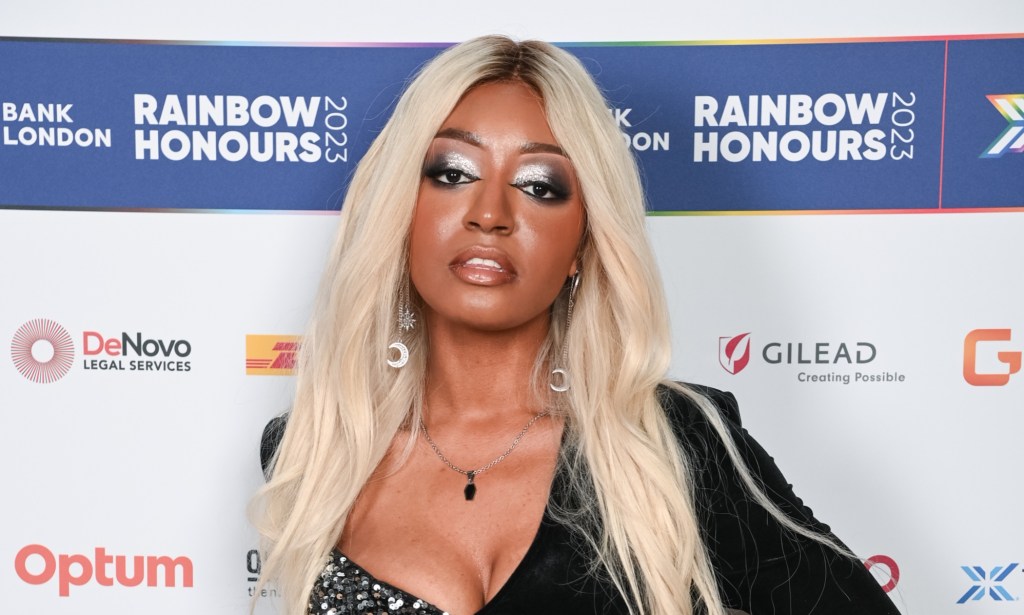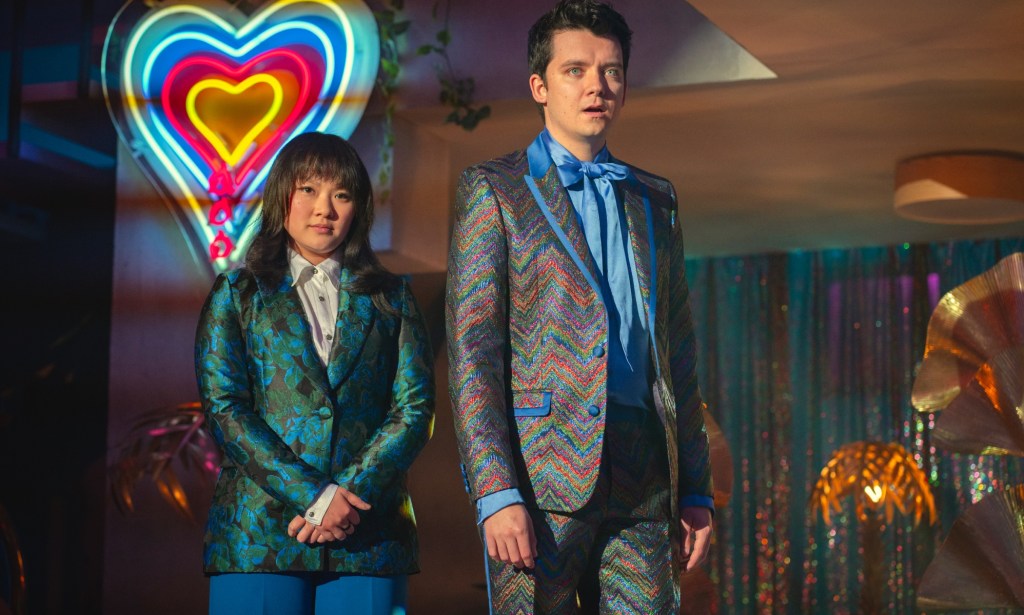How Sex Education season 4 let down the asexual community with the character of O

Thaddea Graham as O in Sex Education season four. (Netflix/Samuel Taylor)
Asexual activist and Sex Education consultant Yasmin Benoit has spoken to PinkNews about the backlash to asexual character O in the show’s fourth and final season.
In a TV landscape already lacking asexual representation, Yasmin Benoit is on a mission to change the narrative. The high-profile asexual activist has previously spoken of their joy at seeing trailblazing characters such as Heartstopper‘s Isaac (played by Tobie Donovan) and hoped to repeat the success on Netflix’s other hit queer teen series, Sex Education.
Season four saw a rich range of LGBTQ+ storylines, including newly-introduced asexual character, Sarah ‘O’ Owen (Thaddea Graham), who plays Cavendish’ Sixth Form College’s sex positive student therapist and Otis’ (Asa Butterfield) arch-rival.
Benoit was brought on by Netflix as a consultant for the character, offering unique and nuanced insight into the asexual experience and hoping to help it translate to the screen. However, after the eight-episode season aired on 21 September, it quickly became apparent that O was a relatively under-developed and character who served as little more than a cold-hearted antagonist for the series.
Following a torrent of abuse from fans, Benoit posted a X thread after season four hit screens claiming several key scenes explaining O’s sexuality, motivations behind her poor treatment of fan-favourite character Ruby (Mimi Keene) and the struggles she faced as an asexual woman of colour had not made the final cut.
Speaking with PinkNews, Benoit explained that as she watched O’s storyline unfold she was shocked to see how the character came across on screen.
“When I watched it I realised some of these things were not translated according to plan, some things had been cut, others changed. Then I understood why the character had such a mixed reception,” she says.
While Benoit understood O was playing Otis’ nemesis, she was clear that she “didn’t want her to be the antagonist of the season”, adding that a lot of the “nuance got lost in translation”.

For example, the scene in which 10-year-old O hurts Ruby by telling the other girls she wet the bed was meant to deflect from O’s own insecurities after being teased as “frigid” and shielding her asexuality. Instead, O’s betrayal seemed entirely unprovoked and malicious.
Elsewhere, Otis was meant to have made more provoking sexist remarks towards O, prompting her to come out as asexual and label him a misogynist during their student counsellor debate. Her apology to Ruby also comes much later in the season than originally planned.
While Benoit “doubts there was any malicious intent” on behalf of the production team who made the final edits, she is all too aware of the potential consequences for asexuals.
“I don’t really blame anyone in particular, I think that’s just how TV shows go,” she continues.
“But when you have literally the only asexual woman of colour on television and it is a really big moment for the community, you do have to be a lot more careful when you’re representing something which is essentially half of the representation we have.”

Especially in a major series such as Sex Education, poorly executed representation has the power to reinforce stereotypes and shape negative views.
“[Portraying O as] the mean and unlikable one is not only reinforcing that asexuals are inherently callous and don’t connect with people, but it’s also pretty harmful to the ace minority that finally get to see themselves in something and then see the [terrible] reception,” Benoit says.
Most disappointing for Benoit is that she had entered the writing room with the key intention of avoiding this kind of portrayal and fallout.
“I’ve always said from the beginning, whatever we do, we’ve got to make sure she does not come across as the villain, we’re not doing the evil, asexual stereotype,” she notes.
“And then accidentally, that’s what ended up happening.”
Now fans across social media are targeting their vitriol towards Benoit due to her public involvement with the poorly-received character. Benoit calls herself an “easy target”.
“I’m the only person you can really visibly see [associated with the character],” she says. “So that was definitely unfortunate because I’ve spent my whole career trying to make sure that asexual representation is positive.”

The 27-year-old, who became the first-ever asexual grand marshal for the New York City Pride parade in June, continues: “I put so much of myself in the character and it’s a little hard not to take it personally when I was like ‘yes, this character is me, finally, after all these years’, and then everyone’s like, ‘well, cool, we hate her’.”
Despite battling the negativity sent her way over the past week, Benoit wants to also focus on the positive aspects of O’s time on Sex Education, which says is “half a step in the right direction” for increasing ace representation.
“I hope that asexual minorities in particular, don’t take the backlash to heart too much,” she concludes.
“It’s been a difficult, even I’m trying to put a positive spin on it in my head but then I’ve also had people say, ‘we did see what you were going for’. I hope once more people see the potential we can do justice for this character.”
Sex Education season one to four are now streaming on Netflix.
How did this story make you feel?

